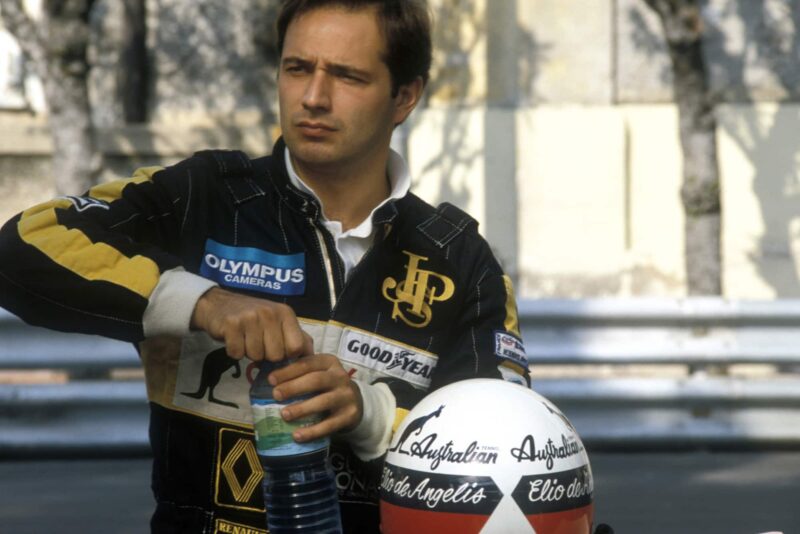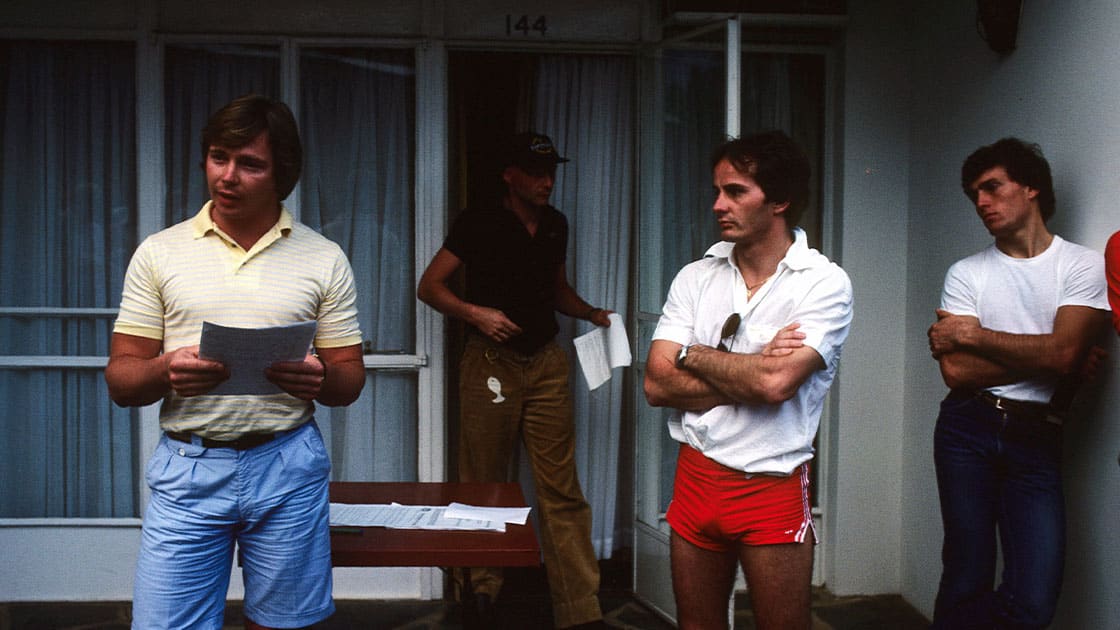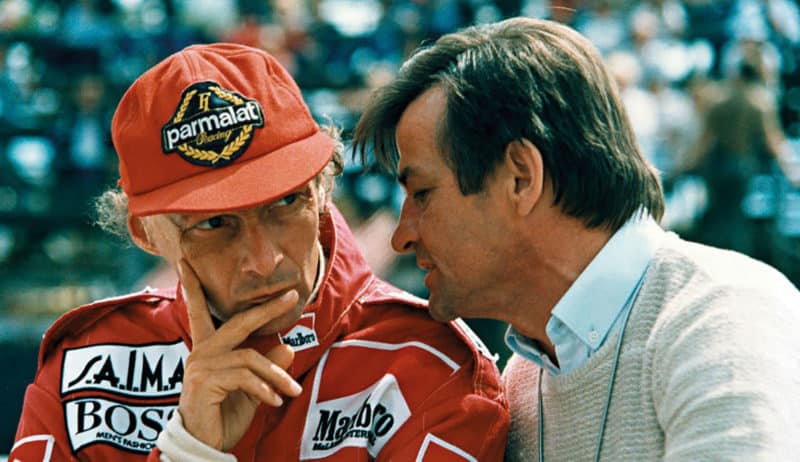This was followed by an asinine statement from Bobby Hartslief, the MD of Kyalami Entertainment Enterprises, which stated that none of the drivers would be eligible for the World Championship – ever again… He added that the teams would be looking for new drivers. “Wanted: 26 young persons seeking a new career in motoring. Experience of 1000bhp turbo engines an advantage.”
Back at the hotel, the drivers pondered their next move. Clearly they would now have to spend the night there, and Lauda decided that some sort of dormitory was the only answer; if they took single rooms he reasoned, unity would be lost, and with it the fight. Therefore he organised a small banquet suite, in which mattresses were installed.
Through the day, a gung-ho schoolboy atmosphere had prevailed, although the more junior drivers were mighty nervous as they contemplated the possible repercussions of going AWOL. Lauda and others stressed to them the importance of sticking together, and then Gilles Villeneuve found there was a piano in the room, and began playing Scott Joplin rags.
Periodically, Pironi would arrive with fresh news from the front, and Villeneuve would preface Didier’s announcement with the dramatic opening chords of Beethoven’s Fifth. Gilles’s sense of irrepressible fun was never more appreciated than that night.

De Angelis was a calming figure in the midst of tension
Grand Prix Photo
Then, after a lecture on the finer points of Italian terrorism from Bruno Giacomelli, de Angelis moved to the piano, sat down, and began to play some Mozart. “Elio was a close friend of mine,” Rosberg said, “so I knew he could play the piano. But no-one knew he could play like that…”
The piano soothed everyone, and was later to serve another less spiritual purpose. When Arrows owner Jackie Oliver arrived with a local heavy and tried to force his way in, the drivers locked the door and shoved the instrument against it.
The next problem was the loo, which was across the hallway. Eventually it was decided to leave the ‘dormitory’ key on a plate in the middle of the room, and all present were put on their honour to relock the door and replace the key. All did – except Toleman’s Teo Fabi, who went out and didn’t come back.




